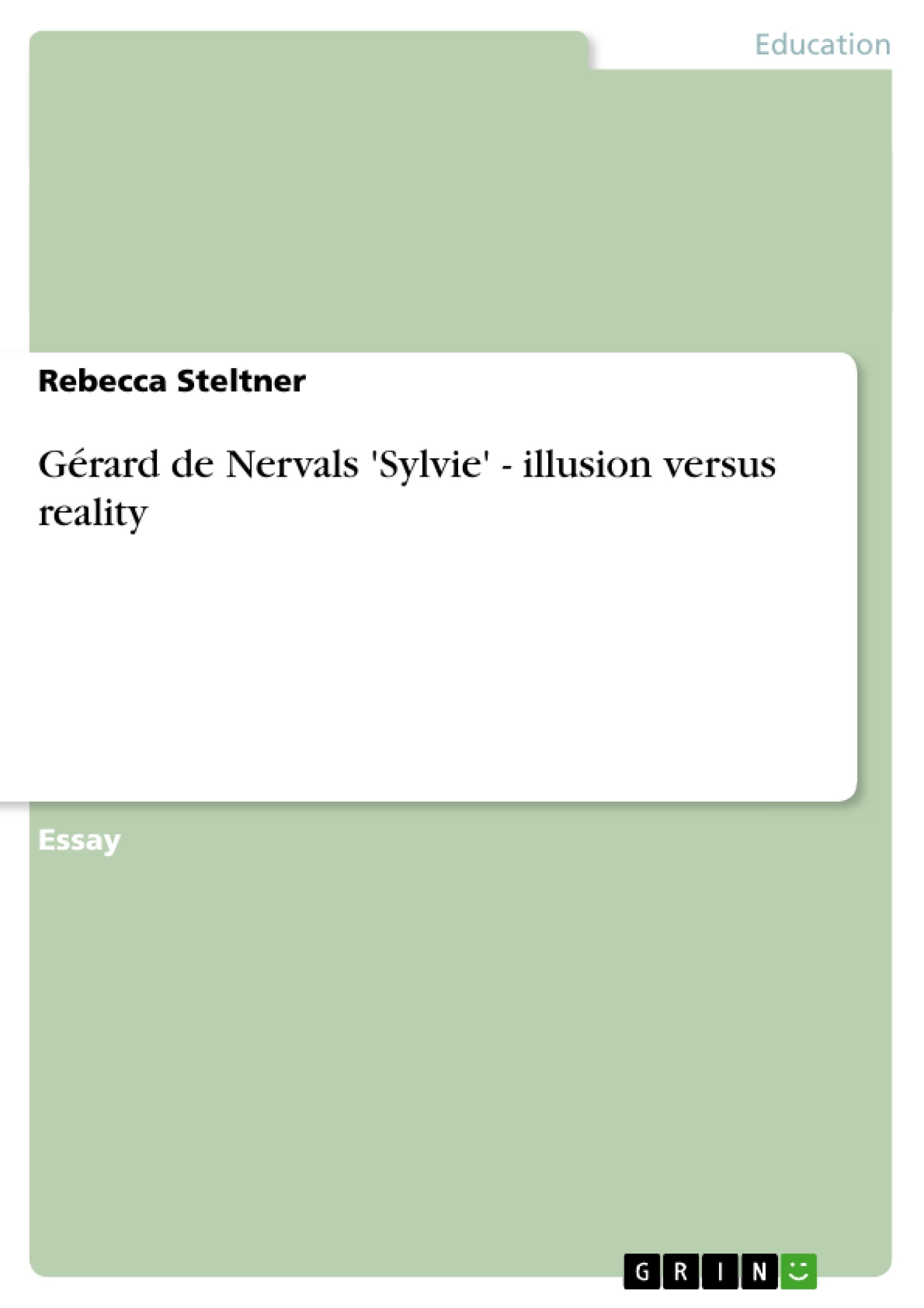Gérard de Nerval’s Sylvie. Souvenirs du Valois, published in 1853, is an exploration of time and memory, dream and reality. The first person narrator is also the main character, who is indecisive and cannot commit himself to any of the three women in his life: Aurélie, Sylvie and Adrienne.
The narrator of Sylvie is unreliable because his perspective is severely distorted. Sometimes his memory fails him and he does not understand his own motives and behaviour, which is both passive and impulsive at the same time. The story he tells us is about himself and only himself, because he has little understanding of the people around him.
It is obvious that the narrator of Sylvie is indeed lost in illusions – this is partly symbolised by the colour descriptions and the fact that most of the novella is set at night and in ‘a dark forest’ – but does that really mean that he actually prefers the state of illusion or reverie to that of clear-headedness and rationality?
In order to find an answer, first we have to look at the specific aspects that he is deluded about. This will certainly reveal the narrator’s character and we can then go on and with the help of such psychological concepts as the of the ego’s mechanisms of defence determine whether it is possible to say, that the narrator of Sylvie positively prefers illusion to reality.
[...]
Inhaltsverzeichnis (Table of Contents)
- The narrator of Sylvie prefers illusion to reality. Discuss.
- Sylvie: an exploration of time and memory, dream and reality
- The unreliable narrator of Sylvie
- The narrator's illusions and misconceptions of love
- The narrator's struggle against his illusions
- Consequences of the narrator's illusions
Zielsetzung und Themenschwerpunkte (Objectives and Key Themes)
This essay aims to analyze the character of the narrator in Gérard de Nerval's Sylvie, focusing on his preference for illusion over reality. The essay examines how the narrator's distorted perception of himself and his relationships with women, particularly Sylvie, Aurélie, and Adrienne, leads him to embrace a world of illusions and romanticized memories.
- The nature of the unreliable narrator
- The role of memory and nostalgia in the narrator's illusions
- The narrator's idealized views of love and relationships
- The narrator's struggle between illusion and reality
- The consequences of the narrator's preference for illusion
Zusammenfassung der Kapitel (Chapter Summaries)
- The essay begins by introducing the narrator of Sylvie and his complex relationship with the three women in his life. The narrator's perspective is shown to be distorted by his tendency to romanticize the past and to view his own feelings through a distorted lens.
- The essay examines the narrator's illusions about memory and the past, particularly his idealized view of his childhood and the countryside. The narrator's inability to distinguish between real memories and fantasies contributes to his overall perception of reality.
- The essay delves into the narrator's illusions about love and his relationships with the three women. His idealized views of them, particularly Adrienne, create a distorted reality in which his feelings are often detached from any concrete experience.
- The essay examines the narrator's potential struggle against his illusions, exploring moments where he appears to recognize the need for a more grounded perspective. However, the essay suggests that even these moments are ultimately part of the narrator's larger pattern of self-deception.
Schlüsselwörter (Keywords)
Key themes and concepts explored in this essay include unreliable narration, memory and nostalgia, romanticism, illusions, self-deception, the nature of love, and the consequences of romanticized perspectives on reality.
- Quote paper
- MPhil Rebecca Steltner (Author), 2002, Gérard de Nervals 'Sylvie' - illusion versus reality, Munich, GRIN Verlag, https://www.hausarbeiten.de/document/15065



